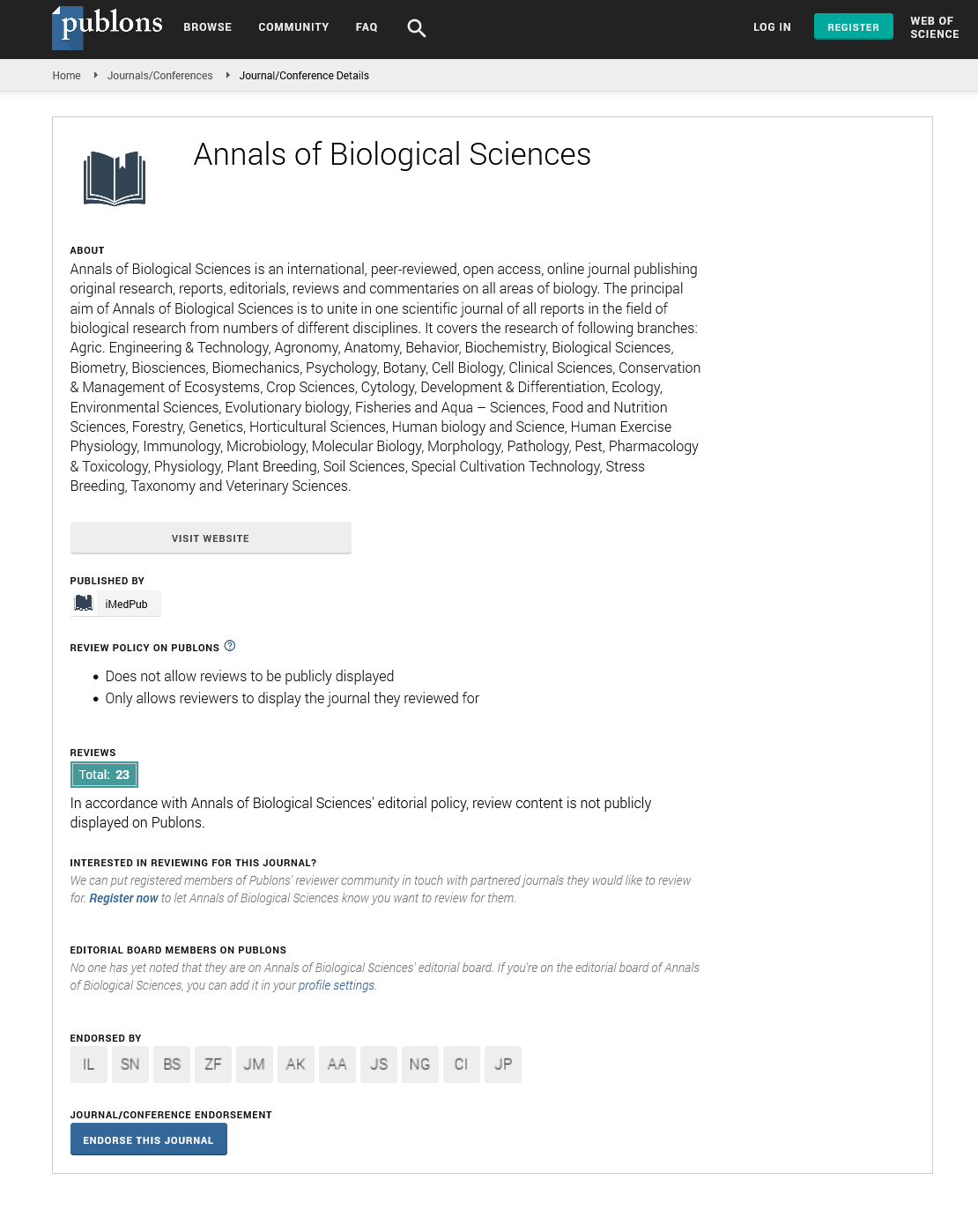ISSN : 2348-1927
Annals of Biological Sciences
Phylogenetic polymorphism in neera-brahmi, Bacopa monnieri (L.) using molecular markers
ANNUAL BIOTECHNOLOGY CONGRESS
August 17-18, 2017 | Toronto, Canada
Sanjoris Anu
Bios Research Centre, India
Posters & Accepted Abstracts: Ann Biol Sci
DOI: 10.21767/2348-1927-C1-003
Abstract
Bacopa monnieri (L.) Penn. commonly known as the neera-brahmi belongs to the family Scrophulariaceae is a small prostrate herb that grows wild in marshy and damp places near water logs, spreading throughout India. Over exploitation of this herbal plant species and the necessity of biodiversity conservation of this endangered plant species have attracted global attention. Accordingly, among the seven highly endangered identified plant species that need immediate attention, B.monnieri plants have a unique position as has been highlighted by NMPB, India and Technology Information Forecasting and Assessment Council (TIFAC), DST, Government of India (http://www.nmpb.nic.in/ prioritisemedicinalplants.htm). In this way biotechnologists also, took much interest in analyzing and monitoring the systemic status of this valuable plant species. Identification of plant varieties/genotypes using modern molecular markers as PCR/RFLP profile have always been sought as reliable, inexpensive, easily obtainable and versatile set of molecular tools as repeatable DNA amplification sequence being relied upon in describing the accurate systematic status of any plant or animal species. The present study envisages tracing the genetic variations using their conserved genome like mitogenome and other different long and short primer polymorphic sequences, thereby intending to explore the population structure of Bacopa monnieri (L.) in India.
Google Scholar citation report
Citations : 406
Annals of Biological Sciences received 406 citations as per Google Scholar report
Annals of Biological Sciences peer review process verified at publons
Abstracted/Indexed in
- Google Scholar
- China National Knowledge Infrastructure (CNKI)
- WorldCat
- Publons
- ROAD
- Secret Search Engine Labs
Open Access Journals
- Aquaculture & Veterinary Science
- Chemistry & Chemical Sciences
- Clinical Sciences
- Engineering
- General Science
- Genetics & Molecular Biology
- Health Care & Nursing
- Immunology & Microbiology
- Materials Science
- Mathematics & Physics
- Medical Sciences
- Neurology & Psychiatry
- Oncology & Cancer Science
- Pharmaceutical Sciences
